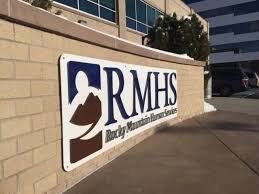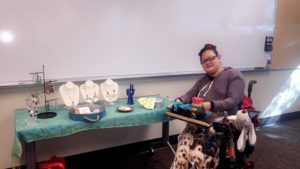
Much has changed for both Rocky Mountain Human Services (originally, Denver Options) and Mikelle and me. Inclusion still motivates me, as Mikelle and I prepare for our presentation to RMHS case managers. However, this time, the focus is on 21st Century Inclusion and the power of technology to connect, to support and empower people with disabilities within the 21st Century Community.
Today, people with disabilities experience a much higher degree of acceptance within the social fabric of our communities. Since 1990 and the passage of the Americans with Disabilities Act, curb cuts abound, restrooms are more or less accessible, and employers are more open to hiring people with disabilities. Although, I wonder how long that will continue if people with disabilities are denied access to the technology businesses use every day. I am speaking of Smart Phones, iPads, and internet access.
Case managers sit at the head of the table, right next to the individual with a disability and their family members, architecting the future at the annual support plan meeting. At the moment, support plans do not address needed technology, and we all know, if the goal was not written into the plan, the goal does not exist.

Back in 1995, Microsoft CEO Bill Gates penned a book titled, The Road Ahead. I read this book, and while I can’t remember most of what he spoke about, I do remember his cautionary concern. Balance high tech with high touch.
That is the theme of our presentation. Personal stories are demonstrating how technology empowers people with disabilities to live independently. Kara Brouhard uses a simple 99 cent app, Aida, which replicates the voice inside our heads telling us to get up in the morning, make the bed and when to let the dog out.
Case managers saw Amanda Boxell get out of her wheelchair and climb into a robotic, 3D printed exoskeleton and walk across a stage. And, while Bill Gates didn’t speak to the group via video, his company did, as we could see Microsoft’s commitment to hiring through its vendor connections people with intellectual and developmental disabilities. To date, Microsoft and their vendor partners have employed 168 people and counting in well-paid, life-changing jobs.
Mikelle and I enjoyed going back to the future. It was great to see familiar faces of dedicated professionals we knew back in the day. We celebrated their dedication and persistence while enjoying the enthusiasm of younger people getting started in human services—for they are the future, and they know the transformative power of technology as a pathway to 21st Century inclusion.
